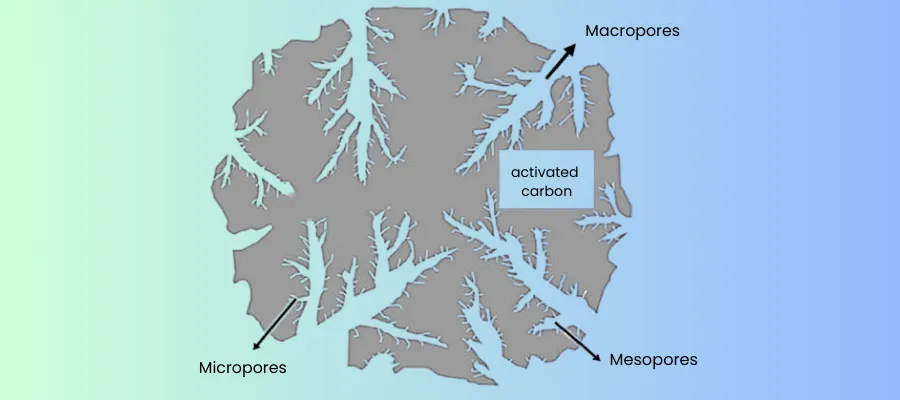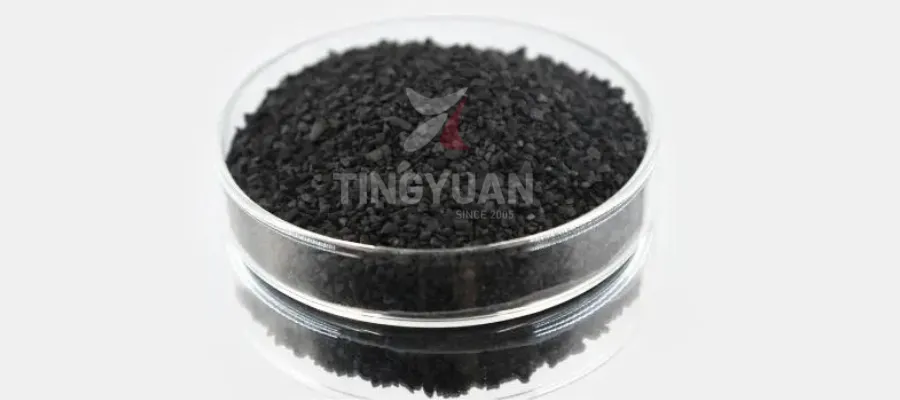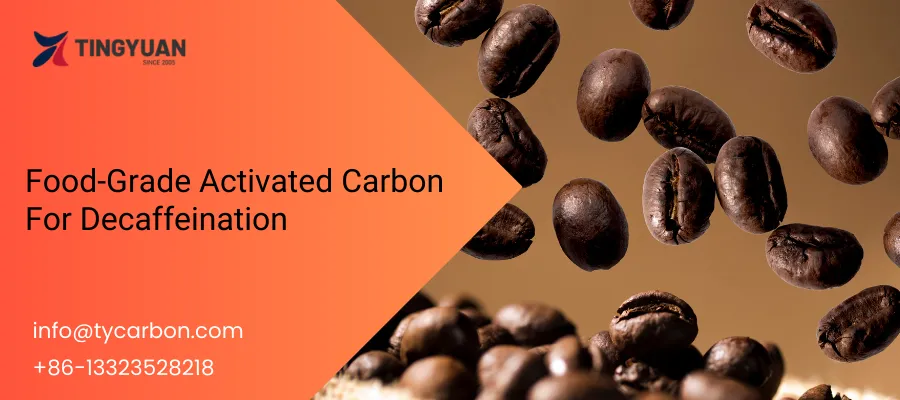Coffee and tea are among the most widely consumed beverages in the world, but the caffeine content in these drinks has always been a hot topic of concern for many people.
While caffeine can provide benefits such as increased alertness, excessive intake can lead to health issues like insomnia and anxiety. Therefore, effectively removing caffeine from beverages has become a key focus for many manufacturers and consumers.
Activated carbon, as a highly efficient adsorbent, has a wide range of applications in the field of beverage decaffeination. With its strong adsorption capacity, activated carbon can efficiently and safely remove caffeine from drinks, offering consumers a healthier and purer beverage option.
This article will provide you with a detailed introduction to the applications and advantages of activated carbon in decaffeination, helping you better understand this technology.
Caffeine and Decaffeination Processes

Caffeine is a naturally occurring alkaloid that exists in coffee beans, tea leaves, cocoa beans, and many other plants. It can stimulate the central nervous system, making people feel energized and mentally sharp. However, excessive caffeine intake can lead to symptoms like anxiety, insomnia, and palpitations, so many people opt for low-caffeine coffee or tea.
Decaffeination is a process that uses physical or chemical methods to remove caffeine from the raw materials like coffee beans and tea leaves, while retaining their original flavor and aroma.
Currently, the common decaffeination methods include solvent extraction, supercritical carbon dioxide extraction, and activated carbon adsorption. Among them, the activated carbon adsorption method is increasingly favored by coffee and tea producers due to its high efficiency, safety, and environmental friendliness.
Principle of Activated Carbon Decaffeination

Activated carbon is a carbon material with a highly developed porous structure and large specific surface area. Its porous structure gives it powerful adsorption capabilities, allowing it to effectively adsorb various organic compounds in aqueous solutions, including caffeine.
The process of removing caffeine using activated carbon mainly relies on physical adsorption. The abundant micropores and mesopores on the activated carbon surface can capture and adsorb caffeine molecules.
Due to the van der Waals forces and other intermolecular interactions between activated carbon and caffeine molecules, the caffeine molecules are firmly adsorbed onto the surface of the activated carbon. This process effectively removes the caffeine while preserving the original flavor and aroma of the beverages.
Advantages of Activated Carbon in Decaffeination
Activated carbon offers numerous advantages in the decaffeination process, maintaining product quality while being widely used in the production of various coffee and tea beverages. Here are some of its unique advantages:
- Low attrition loss
- Superior hardness
- High molasses value
- High mechanical strength
- Strong adsorptive pore structure
How To Choose Suitable Activated Carbon?

Selecting the appropriate activated carbon product for decaffeination is essential. With so many types of activated carbon available, how do we make the right choice? Keep reading to find the answers you want.
Tingyuan Activated Carbon Group is a China leading supplier with over 20 years of expertise in activated carbon industry. Our products are certified by NSF, HALAL, ARA HALAL, KOSHER, and ISO. Our company is dedicated to providing a range of high-quality, innovative, and cost-effective activated carbon products.
We offer specialized activated carbon for decaffeination (click to learn more). This activated carbon is specifically designed to remove organic compounds from water, food processing streams, wastewater, and industrial processes. Made from selected grades of bituminous coal, it can withstand the wear and tear caused by repeated backwashing, hydraulic transport, and reactivation.
Here are some key parameters:
| Feature | Parameter |
|---|---|
| Iodine Value | 800-950 mg/g |
| Mesh Size | 12-40 Mesh |
| Material | Bituminous Coal |
| Molasses value | 210(min) |
| Ash (%) | 6 (max) |
Ready to Procure Activated Carbon?
Activated carbon adsorption is an efficient, safe, and environmentally-friendly caffeine removal method, helping you produce high-quality low-caffeine coffee and tea products.
Tingyuan, as a company that integrates activated carbon research, production, sales, and service, is committed to providing customers with quality products and professional technical support. If you have any questions about activated carbon decaffeination, please feel free to contact us.
Whatsapp: +86-13323528218
Email: info@tycarbon.com

